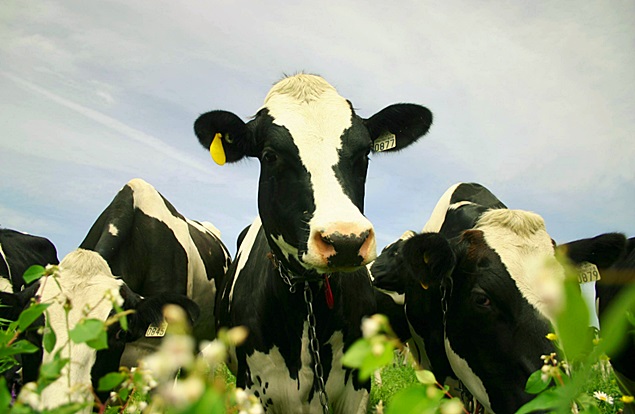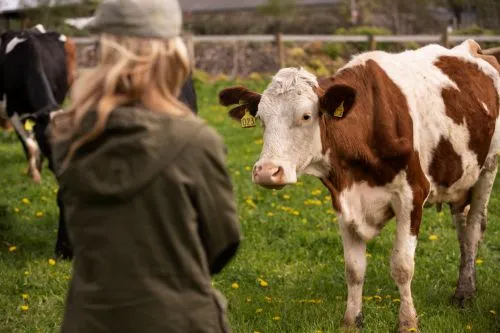1699

As consumers become increasingly concerned about the impact of their food choices on biodiversity, dairy ingredient formulators are pushing the boundaries to adopt practices beyond just reducing the carbon footprint of a product, FoodIngredientsFirst reports.
Focus on sustainability
The emphasis on sustainability and environmental transparency aligns with the top ten trends in 2024 from Innova Market Insights' "Nurturing Nature," underscoring that initiatives connecting with nature resonate with consumers.
"One of the key trends driving interest in regenerative agriculture is that consumers are increasingly aware of the 'health of the planet' in recent years - a substantial proportion of 48% of them have actively changed their diet and lifestyle in the past year to behave more sustainably," remarks Brookmeyer.
As consumers are willing to take action, he emphasizes the need for brands to engage "actively and significantly" with their customers on sustainability issues.
"Exploring regenerative agricultural practices can be essential to meet their requirements and create a more environmentally conscious industry. Because biodiversity is incredibly important when it comes to protecting the future of our food systems."
Cow-nature synergy
FrieslandCampina Ingredients closely collaborates with its member farmers to implement multiple regenerative agricultural practices to feed biodiversity.
Brookmeyer says the company aims to pave the way in a "measurable approach" to biodiversity (Credit image: FrieslandCampina Ingredients). One example he highlights involves promoting natural landscapes rich in trees, hedgerows, flowers, and ditches serving as habitats for birds, insects, and other animals.
"A second essential initiative is protecting lunchtime birds. By either cutting fields later in the year or avoiding mowing completely, we provide lunchtime birds with a safe space for nesting," he details.
Additionally, the company works with farmers to plant pastures rich in plants, creating areas with "richer soil" that provide nutrients to dairy cows.
"It's the exact opposite of creating a monoculture; this way, we can ensure our cows receive all the essential food from nature. Due to these practices, we can connect the more abstract concepts of biodiversity and regenerative agriculture to the plants and animals that consumers know and interact with every day."
Assessing impact using technology
To measure the impact and performance of dairy farms on biodiversity over time, FrieslandCampina Ingredients collaborated with the Worldwide Fund for Nature's Netherlands office and Rabobank to develop an advanced biodiversity monitor, Brookmeyer reveals.
"The biodiversity monitor allows farmers to input all their empirical data on biodiversity, such as nitrogen and ammonia levels in the soil, as well as the dynamics of insect and pollinator populations."
The company then uses the information to "strategically select" the best biodiversity conservation techniques on farms.
Foqus planet is the company's farmer incentive program, helping farmers decide which biodiversity measures work best for their farm. "Additionally, by sharing their knowledge, farmers also help us expand sustainability practices, promoting continuous progress. Our goal is to pave the way for our industry in a measurable approach to biodiversity," Brookmeyer continues.
According to him, the unique tool enables the company to collect valuable, actionable data on a wide range of key performance indicators to make efficient and informed decisions.
Additionally, the company encourages farmers to make their farms more sustainable in their own way through its science-based Foqus Planet sustainable development program.
"Their progress is systematically evaluated each year, and based on the results achieved, they receive a bonus partially funded by a cooperation scheme and partially by the company."
Aiming for consumer loyalty
Biodiversity conservation promotes a healthier ecosystem and enriches soil quality, increasing its capacity to absorb carbon, notes Brookmeyer.
"Biodiverse landscapes also provide vital nutrients to the soil and regulate organic matter dynamics in the soil, maintaining green grass and keeping our cows healthy and well-fed."
The benefits of regenerative agriculture also extend to producers, as eco-conscious consumers increasingly appreciate these practices.
"Supplying ingredients from suppliers with a proven track record in biodiversity conservation provides businesses in food, beverages, and nutrition with a tangible example of their commitment to feeding a better planet."
FrieslandCampina Ingredients' consumer research reveals that 76% of parents are concerned about deforestation, and 74% are concerned about animal disappearance. He also considers providing nature-supporting solutions as a way for brands to cultivate loyalty and trust.
By leveraging data and using ingredients produced with biodiversity in mind, brands can position themselves as "proactive guardians" of planetary well-being to resonate with the growing segment of consumers prioritizing sustainability.
Perspectives
As consumers prioritize planetary nutrition, Brookmeyer anticipates that the topic will also be at the forefront of producers' minds.
"Our regenerative agricultural practices strongly align with our sustainability goals, especially within our Better Nature pillar, which highlights our commitment to improving biodiversity and positively impacting our local environment."
The company aims for climate-neutral dairy products by 2050 and will continue to invest in farm initiatives as that's where most emissions occur.
"To achieve this ambitious goal, we will actively seek more partnerships with our customers, also working on reducing level three emissions. Through collaborative efforts and continued dedication to responsible practices, we are ready to make substantial progress towards a future where our operations not only mitigate climate impact but also positively contribute to the biodiversity of our planet," he concludes. (Photo: Dreamstime)





